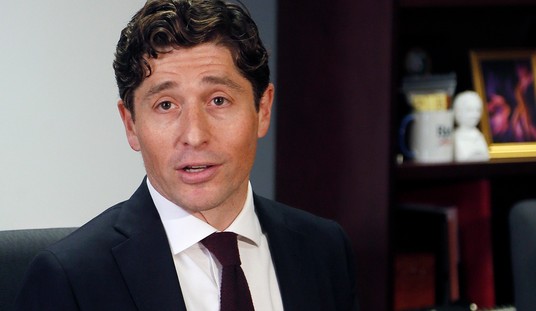“President Obama made no apparent headway on Monday in his attempt to forge a crisis-averting budget deal, but he put on full display his effort to position himself as a pragmatic centrist willing to confront both parties and address intractable problems…
“Republicans dismissed his performance as political theater. But Mr. Obama’s remarks appeared to be aimed at independent voters as well as at Congressional leaders, and stood in contrast to the Republican focus on the party’s conservative base, both in the budget showdown and in presidential politics…
“Seeking to shed the image of big-government liberal that Republicans used effectively against him last year, he has made or offered policy compromises on an array of issues and cast himself in the role of the adult referee for both parties’ gamesmanship, or the parent of stubborn children…
“‘There was never a discussion of, ‘Let’s sit down and reposition ourselves.’ There were discussions of returning to first principles and the things that motivated him to run,’ said David Axelrod, Mr. Obama’s senior political strategist. ‘This is what he talked about all through the 2008 campaign — that we need to put solving problems ahead of scoring political points, and we have to think about not just the next election but the next generation.'”
***
“Groups such as Norquist’s and Greenstein’s serve as political and intellectual gatekeepers. They help determine which ideas and what rhetoric are acceptable to their partisans. The visions presented to their constituents are satisfying — but also selective, simplistic and, ultimately, false. This is one reason that budget debates have been so futile, and why the nation is now flirting with a potentially disastrous failure to raise the debt ceiling.
“Governing is about choosing, and in the budget debate, there are no popular choices. But the reality shaping them all is an aging society in which programs for the elderly are pushing the budget into growing disequilibrium. Until the political gatekeepers acknowledge this — meaning the left recognizes the need for genuine benefit cuts and the right accepts some higher taxes — public understanding and political agreement will remain hostage to partisan fairy tales. It’s time to deal with facts.”
***
“The bases on both sides view any deviation or compromise as blasphemy. The astute veteran political columnist Mark Shields likes to say that he would rather belong to a church that is seeking converts than one intent on driving out heretics. But that’s not the approach that many rank-and-file Republicans and Democrats in Congress are taking these days…
“My sense is that when members of Congress go back to their states and districts, they are staying more in their comfort zones than they did in the past. They are appearing before more predictably friendly audiences and, deliberately or not, eschewing those who disagree with them. Every lawmaker can point to an event where an angry constituent became confrontational. But those incidents are happening less and less, minimizing their exposure to hostile audiences and contrary points of view…
“Elected officials on both sides of the aisle become like Pavlov’s dogs when they spend too much time with friendly audiences. They come to instinctively know what listeners want to hear and will produce a political reward versus what will be frowned upon and could warrant punishment. They know what lines and arguments will result in smiles and heads nodding up and down in approval or frowns and heads shaking back and forth. Predictable audiences result in predictable responses. But members should try a little door-knocking and seek out audiences that don’t consist almost entirely of the party faithful. They might hear something very different, and get a hint of what may be coming down the road.”
***
“In a rational world, electorates would recognize the need both to reduce entitlements and to increase revenue. But indignation isn’t rational. The Tea Party position is that the deficit should be reduced without any increase in revenue, even the elimination of tax breaks and loopholes that all serious economists now define as ‘tax expenditures’ (because they essentially give revenue away to lucky special interests). At the same time, many Tea Party supporters appear reluctant to accept that cuts would apply to their own entitlements as well as everyone else’s.
“Even more self-contradictory is the readiness of young people in Europe to back the interest groups opposed to spending cuts. The recent demonstrations in London were essentially on behalf of teachers relatively close to retirement. ‘It’s for the future generations that we’re doing this,’ claimed one protester, ‘not just for ourselves. We’re doing it for everybody.’ Baloney. It’s the government that has the future generations in mind, not the protesters. The young people who join in such protests are suckers, demonstrating for the right to pay much higher taxes in the future.
“Today’s proponents of austerity are like toreadors, fighting the raging bull of debt. I can understand the vested interests throwing bottles at them. It’s the cheers of the Indignant that are bizarre.”
***
“I lived through this with President Carter, in which you start asking, ‘Does this guy have any idea what he’s doing?'”
***








Join the conversation as a VIP Member